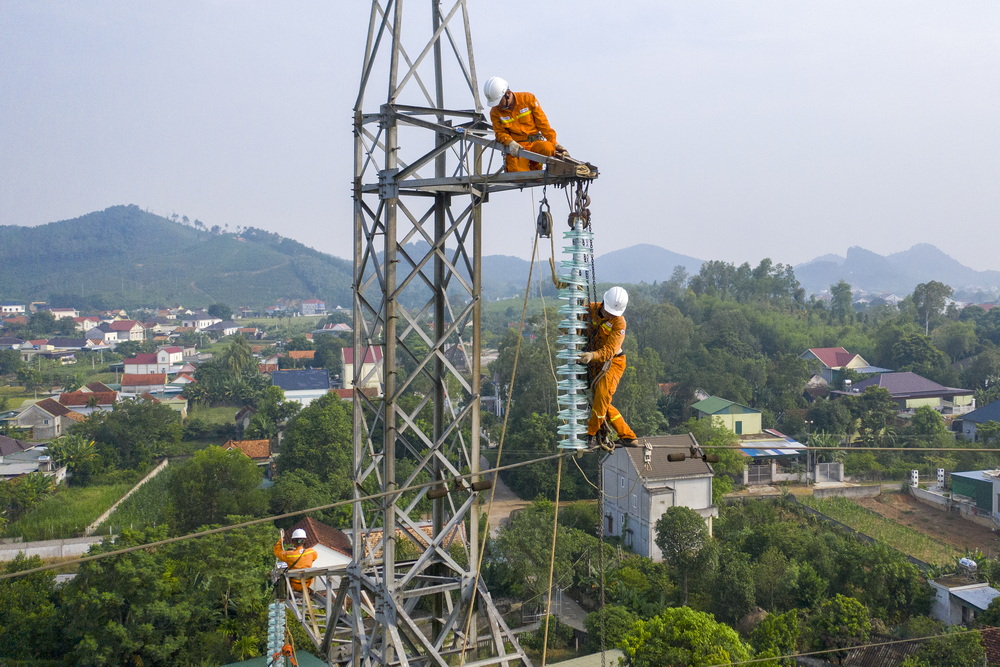
Vietnam Electricity (EVN) has mobilised over 120 teams with more than 1,500 engineers from May 30 from power corporations spanning the country to accelerate the construction of the circuit-3 500kV Quang Trach-Pho Noi line.
The line is a key project currently to ensure electricity supply to the north this summer.
Huynh Quang Thinh, head of the Technical Department at Power Transmission Company 3, said, “In favourable weather conditions, we will carry out construction within 15-20 days to complete a column volume of over 100 tonnes. Each engineer is determined to complete the work synchronously with other units.”
Power consumption exceeded one billion kilowatt-hours daily for the first time in late May amid high temperatures nationwide. The electricity use in May was reported at an average of 913.6 million kWh per day.
April’s average daily electricity consumption increased by 21 per cent compared to the year’s first three months, according to the National Load Dispatch Centre. From April to July, electricity consumption is anticipated to rise by up to 17 per cent to 27,480MW, exerting pressure on the power industry and the northern region.
Meanwhile, production plus imports are expected to only rise by 10 per cent on-year to 52.3kWh.
According to EVN, the northern region may face a shortage of nearly 1,600-2,900MW during peak hours in June. The available capacity of all systems in the north is estimated to be around 24,000MW, while electricity demand during peak hours could amount to over 27,000MW.
“In 2024-2025, the power system in the north may face the risk of both capacity and the electricity output because the power demand is forecasted to increase by 13 per cent on-year,” said an expert in the power industry. “Meanwhile, the unusually hot weather in collaboration with a lack of rain made reservoir water levels at hydropower plants drop, causing a decrease in millions of kWh of power generation per day.”
The expert added that mobilising the maximum electricity sources from coal-fired and gas-to-power plants is only an immediate solution. For the long term, it is necessary to have methodical solutions to unlock the policy for new sources such as solar and wind power.
“Many investors are concerned about investment in power projects after many renewable energy schemes were inspected and had delayed payments, or made no payments at all, because there is no agency to handle these situations,” he said. “In addition, all transitional renewable energy projects have not yet finished negotiating the official electricity price, even though it has taken a whole year.”
Furthermore, the mechanism for new renewable power projects has yet to be enabled. The Ministry of Industry and Trade has not yet finished developing policies for rooftop solar power projects. Onshore wind power projects also do not have any specific policies for investors to have a basis to calculate efficiency before pouring in money, he added.
The record high electricity consumption has forced EVN to mobilise the maximum power capacity from coal-fired and gas-to-power plants to ensure a stable power supply.
According to the Electricity Regulatory Authority of Vietnam, for coal-fired power sources, the average daily output in May reached about 557 million kWh, 36 million kWh higher than the plan set up for the month. Currently, EVN has mobilised all coal-fired power units and required member companies to ensure the coal source to operate power plants.